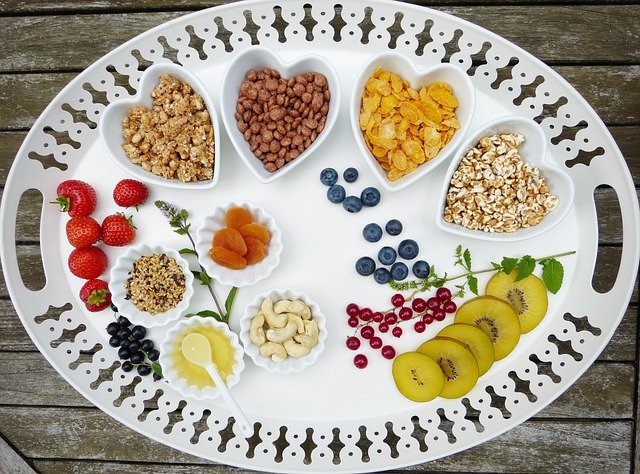From endless Instagram food hacks to friends touting the latest “miracle” diet, it seems everyone has nutrition advice—and often it contradicts itself. How do you separate fact from fad? Enter the registered dietitian (RD)—a certified expert whose training and experience can guide you past the noise to a personalized, evidence‑based path toward better health.

Nutritionist vs. Registered Dietitian: Why Credentials Matter
You might see the title “nutritionist” on social media or even at your gym—but anyone can call themselves a nutritionist, regardless of training. In contrast, a registered dietitian (RD) or registered dietitian nutritionist (RDN) holds:
- A four‑year degree in dietetics from an accredited program
- 1,000+ hours of supervised practice
- A national board exam credential
- Ongoing continuing education to stay current
This rigorous preparation equips RDs to assess your unique medical history, lab results, lifestyle factors, and personal preferences—then translate that complex picture into nutritional strategies that work for you.
Beyond Meal Plans: The Many Hats of a Dietitian
Far from simply handing you a one‑size‑fits‑all menu, RDs serve in diverse roles:
- Healthcare settings: Hospitals, clinics, and rehab centers
- Community and public health: School programs, nutrition outreach
- Food service: School cafeterias, corporate dining—ensuring meals meet dietary needs
- Research and policy: Shaping nutrition guidelines and public health initiatives
- Private practice: One‑on‑one coaching for weight loss, sports nutrition, or chronic disease management
- Corporate wellness: Employee education and healthy workplace initiatives
Within each of these arenas, dietitians evaluate lab results and health histories, co‑design personal goals with clients, and adjust plans over time—providing accountability and support every step of the way.

Who Benefits from Partnering with an RD?
Truth be told, everyone stands to gain from consulting a registered dietitian:
- Disease management: If you have diabetes, heart disease, kidney issues, or gastrointestinal disorders, an RD crafts meal strategies that help control symptoms, manage medications, and boost overall well‑being.
- Weight goals: Whether you’re seeking sustainable weight loss or healthy weight gain, an RD dives deeper than “calories in, calories out” to address sleep, stress, emotional eating, and long‑term habits.
- Food sensitivities: From celiac disease to lactose intolerance, RDs guide you safely through elimination diets and ensure your nutrient needs are still met.
- Plant‑based diets: Curious about vegan or vegetarian eating? An RD shows you how to get adequate protein, iron, B12, and other key nutrients without guesswork.
- Athletic performance: RDs design fueling strategies that optimize energy, recovery, and body composition—crucial for both weekend warriors and elite athletes.
- Preventive health: Even without a diagnosis, working with an RD can help you cultivate eating habits that reduce risk of chronic illness and enhance longevity.
What to Expect in an RD Consultation
When you meet a dietitian, anticipate a deep dive into your life:
- Initial Assessment: Labs, medical history, current eating patterns, physical activity, stress levels, and social factors.
- Collaborative Planning: Together, you set realistic, measurable goals—like adding two new vegetables weekly or learning mindful eating techniques.
- Ongoing Monitoring: Follow‑up sessions track progress, troubleshoot obstacles, and fine‑tune your plan.
- Education and Skills: You’ll learn label‑reading, meal‑prep shortcuts, budget‑friendly shopping tips, and strategies to navigate social eating scenarios.
This holistic approach acknowledges that true change happens when nutrition, lifestyle, and mindset align.
Myths Dietitians Don’t Uphold
- “All carbs are evil.” RDs clarify the difference between refined and whole carbohydrates, showing you how fiber‑rich grains fuel your body.
- “There are ‘good’ and ‘bad’ foods.” Rather than moralizing your plate, RDs teach balance, portion awareness, and flexibility—because a doughnut sometimes can be part of a healthy lifestyle.
- “One diet fits all.” Your genes, health history, and even taste buds are singular. RDs tailor recommendations to your biology and culture.
Finding Your RD Partner
Ready to cut through the diet clutter? Here’s how to connect with a registered dietitian:
- Referral: Ask your primary care provider, specialist, or local hospital for an RD recommendation.
- Online Directories: The Academy of Nutrition and Dietetics (eatright.org) offers a “Find an Expert” tool.
- Community Health Centers: Many clinics and wellness centers host RD‑led group classes on diabetes management, heart health, and more.
- Telehealth: Virtual RD services have exploded, letting you schedule sessions from your home on your own time.
Taking the First Step
Nutrition is one of the most powerful levers for improving your health—and a registered dietitian is the professional who can guide you safely and effectively. Whether you’re managing an illness, refining your fitness regimen, or simply craving more energy and vitality, partnering with an RD offers personalized insight, compassionate coaching, and lasting results.
Don’t let fad diets or half‑truths steer your health. Invest in a certified expert who sees you—your goals, your challenges, and your strengths—and helps you write the next chapter of your wellness story.



